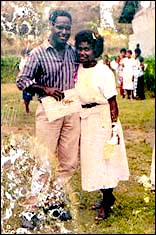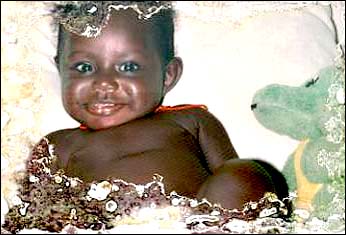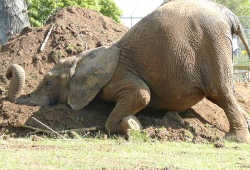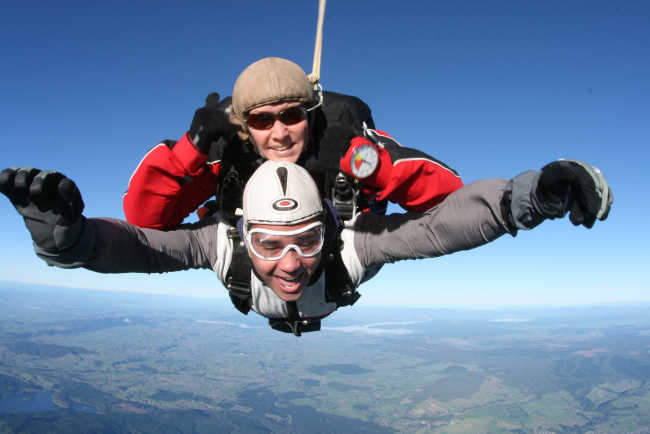The Sufferings Of The Women Of Bougainville Dorothy – 17/4/00
An interview with Josie Kauona Sirivi – part i
If you have not already read the previous articles in this series, you may wish to begin by reading Part One
When I had the privilege of talking to Josie her first comment was that so much had happened to the women of Bougainville in ten years of suffering that she hardly knew where to begin, so we went back to the days before the pain and hardship began.
Life before the war Josie explained how the customs of her culture were observed as she grew up.
"Women are very important in the Bougainvillian culture. It is a matrilineal society and we women are the custodians of the land. I am the fifth born in the family and the land passes from my mother to me and my sisters as part of our clan which is descended from my mother’s clan and family.
"I have been through all the initiation ceremonies performed by my aunties and uncles. My initiation ceremony started two days after I was born. The uncles and aunties came together to welcome the new baby into their family. During that time my aunties cooked sacred food for my mother. Only the aunties and uncles ate with my mother to dedicate me and wish me good health in growing up. The last and final step was the initiation through public speaking. My final ceremony took place when I was in primary School during my family’s feast to thank my dad and his clan for my family.
"Just before the war broke out in 1988, I was taken to the sacred place of my clan’s great King. He lived there when Germans came and took him away. My clan do not know what happened to him. They are seeking for information about him.
"I was given a traditional initiation upon seeing the remains of my clan’s great king. Today I have been given the authority to be the one in charge of the place.
"My father is the son of a chief from the Navuia area, and they were the landowners alongside Sam’s clan."
In 1988 Josie was looking forward to a fairly secure future. She had graduated at Passam National High School in Papua New Guinea in 1987.
|
|
| Josie and Sam at Josie’s graduation at Passam National High School PNG |
She was engaged to be married to Bougainvillian Sam Kauona who was a successful soldier gaining promotion in the PNG Defence Force. She was a student in a business course in the Divine Word Institution, Madang, and was expecting to graduate in eight months. She went back to Bougainville for the vacation and her parents would not allow her to return to Madang because of bad experiences of young Bougainvilleans living in Papua New Guinea.
Josie was intensely disappointed by this interruption to her career and worried about it so much that she became ill. Sam came on leave from Port Moresby to Bougainville to see her and while there attended a meeting of Bougainvillians opposed to the mine and the foreign control of the island. As a result he was to face a court martial on his return, so he remained and soon after was made General of the Bougainville Revolutionary Army (BRA).
The PNG Defence Force brings terror to the villages Josie married Sam, and expected to live in her village, but the villages became a fighting zone as the PNG soldiers were coming and killing men, women and children. They raped the women in front of their menfolk. Some of the young girls died after they were raped. Some were murdered. They were humiliated in front of each other by being forced to commit indecent acts and dance naked in public.
Survival in the jungle The PNG soldiers had looted and burnt the villages so the families who were forced to flee into the jungle were desperately short of clothes and could not buy anything new. Their stores of food were taken so they had to live on what grew wild in the jungles until their new gardens were developed. Pawpaw, coconut and nuts grew wild in the jungle, so they were seldom totally without food.
The women established gardens every time that they set up camp and they used the crops to feed their families and the men of the BRA who were protecting them from the soldiers of the PNG Defence Force. The women would clear a patch in the jungle and tend the garden every day, a task involving back-breaking toil. They had to move frequently for their safety which meant that they had to walk all day starting from morning and arrive back at the camp in the night after gathering food from gardens at previous campsites.
When Sam came back to the camp after visiting the operations of the army he would help with the garden. In three months the garden would provide the food which was essential for the survival of all the people living in the jungle.
Narrow escapes At the mission station Josie and Sam were staying with her uncle at Koromira Catholic mission station in 1989. Josie dreamt that she was going to be captured at the Mission Station and that she should leave the next day, which was Sunday, as the soldiers would come early in the morning on the following Sunday.
It was too dangerous for Sam and Josie to stay in the villages, so they left at 7.00 p.m. in the moonlight and even though she was seven months pregnant with her first child they went into the jungle.
The soldiers did come to the Mission on the following Sunday at 3 a.m. Her uncle was sick in bed, but they dragged him out, threw him to the ground, and kicked and beat him with their M16 rifles and a heavy machine gun accusing him of sheltering Josie and Sam. He has been ill ever since then because of his injuries. They caught all the people in the church, took them out, lined them up and asked if they knew Sam, but they all said “NO”. The young boys were taken to a prison cell at Kieta.
At the clinic “The last time that I went to the clinic at the hospital I gave a false name.” said Josie. “One of the nursing sisters was my classmate at high school. The nurses knew me, but they didn’t say who I was. They sent word that the soldiers were looking for me. Luckily there was a bus going at an unscheduled time and I jumped on board and got away without having my health check.
Life in the jungle "I worried about going into labour with no medical help. I had been used to village life, not to living in the jungle. I had to carry everything with me – clothes, bedding and cooking utensils. I found struggling up mountains and carrying my load when pregnant very difficult. The valley in the jungle where we first stayed was very cold and damp. Most of the time we did not see the sun as we were underneath big trees to hide from the flying helicopters which were hunting for us. There was no sunshine to dry our clothes."
Childbirth and illness After three weeks she went into labour and after two days without any medical care she gave birth to Melanie on September 19, 1989. Josie recalls that distressing time. "I was sick for two days of labour and then I had an afterbirth problem. I was sick for another seven days and I could not breastfeed her. I was lucky to have my mother with me who knows the bush medicines. She looked after me and my baby. She slept with Melanie while I was recovering. I could not sleep with so much pain from the remains of afterbirth.
"Fortunately she knew how to make herbal potions from plants in the jungle and use them to expel the afterbirth. This saved my life, but I was still very ill for a week and could only feed my baby after that time. However I had to move on, looking for a safe place to hide and worrying about whether my baby would live. I used to cry when life was hard and lonely. There was no one around to share with me. My experience of being a mother was during a dangerous and difficult time. There were times when I regretted being married and was faced with difficulties raising my precious baby – my hope for the future. I accepted my baby wholeheartedly and decided to fight the situation to survive with her."
|
|
| Melanie Sirivi aged six months in 1990 |
Photos supplied by Josie Kauona Sirivi.
Long years of trauma still lay ahead for Josie and the other women of Bougainville. Read Part ii of this interview.






